Best SAT Math Tutors Near Me
If you are struggling with SAT math topics, such as geometry, algebra, equations, systems of linear equations, data analysis, and much more, it may be best to seek a math tutor. To find a math tutor nearby, students should use search engines that allow them to place their locations and choose the type of tutoring they wish to have.
A site like Thumbtack allows individual students and parents to find private tutors that suit their locations and needs, including preparing for SAT math topics and the SAT math test, or the SAT test, in general. Meanwhile, the site will enable users to adjust their grade levels from kindergarten to college. Therefore, the online or in-person tutor understands what they need to do to improve student learning.
The SAT math test and SAT math topics can cause worry and stress in students. Luckily, many tutors focus on SAT math topics, such as linear equations, data analysis, linear and exponential growth, problem-solving, quadratic equations, advanced math questions, and many more math concepts.
How a Math Tutor Can Help
Depending on the education level, student progress can often feel stagnant and stressful, especially when it comes to hard-to-understand concepts like linear equations, data analysis, linear and exponential growth, and many more.
Advanced math is a field that can be incredibly difficult to grasp, yet it may be a field required by a college board or part of a college admissions process to be chosen to attend that college. Tutors can help with additional topics in math, such as SAT math prep, and offer more info needed to do well during the SATs, such as learning to write equations, work through concepts, use data to solve problems, and much more.
The SATs can be a stressful time in a student’s life. Worrying about SAT math questions and topics in the SAT math topics can make a student’s life much more difficult, especially if math is not their strongest topic.
Those who want to feel independent may feel like they cannot ask for help. However, independence can hinder a student’s valuable learning experience and understanding. Math tutors ensure individuals will better understand math concepts and additional topics. These include word problems, prime numbers, reference information, linear and nonlinear equations, practice problems, and more.
When people learn and understand the content being taught, they gain confidence. This confidence is valuable because self-confidence is vital in enabling students to recover after going through a setback. Confidence allows individuals to overcome those situations stronger, whether it be an educational or a personal setback. This is why a student may desire to find a tutor who may specialize in additional topics in math rather than the basics. This can help them prepare for the SAT math topics and even show their college board how they value their education.
It is important to remember that tutors are a great way to challenge individuals just enough to sharpen their skills without overwhelming them with repetitive work. They can teach individually, whether college attendees or in high school, in one-on-one sessions that contribute to the high-stress situations that are group educational learning.
How a Math Tutor Works
Math tutoring is different from a teacher and classroom environment in various ways. Math tutors can help a student one-on-one, whereas a teacher must focus on an entire classroom. Kids and parents can ask the tutors questions about how they prefer teaching and what they specialize in.
Tutoring typically lasts an hour to an hour and a half, whereas classes at university can last up to three hours or more per sitting. This can give a student’s mind time to wander, while a tutor can help refocus and redirect back to the topic prep. This can offer an advantage to a student who may be prone to having trouble focusing.
One of the main points a tutor can offer a student or individual is the physical presence of support and encouragement. Face-to-face conversations or even video-chat communications can help aid the individual’s concentration and focus on a particular topic.
Tutors, especially for the SAT math test, can help individuals study SAT math topics or sections while assisting them in putting their best effort forward in preparation. The SAT math sections are one of the hardest of the SATs, so a tutor specializing in the SAT math topics and problem-solving may be the best bet.
Benefits of Working With a Math Tutor

Working with a math tutor is very beneficial for struggling individuals and those who are high achievers. Tutors are not just for those struggling in a specific topic or class; they can help those who wish to do their best or learn more from an issue, such as advanced math.
Read on for some others ways a math tutor can help individuals in other ways than preparing them for the SAT math test.
Improves academic performance
A tutor is a great way to challenge individuals just enough to sharpen their skills without overwhelming them with work that’s too difficult or boring them with work that’s too easy. Instead of only looking at a test booklet, a proper math tutor will help people solve problems and data.
Boosts self-esteem
When students learn and understand the content being taught, they gain confidence. This confidence is valuable not just in the classroom and around SAT time but will also filter into other aspects of their lives.
This confidence gives individuals the encouragement they need to take practice tests, look at complex numbers, and look at linear functions without getting stressed.
Caters to the individual needs of the student
The one-on-one sessions are designed to meet the specific needs of that individual student instead of an entire classroom.
It offers a different perspective on problem-solving
People learn in many different ways depending on the style of teaching. A tutor can help a child learn in a way that is comfortable to them but also shows them other ways to approach problem-solving and thinking outside of their personal preference.
Encourages communication
Individuals must learn to communicate their needs and ask questions when working with a tutor. This helps them build a different type of relationship with their parents, friends, and teachers.
Considering these are only a few of the many benefits of having a tutor, the positives of receiving academic assistance from someone with tutor skills far outweigh preconceived negatives.
How Much Does a Math Tutor Cost?
Math Tutors average around $33-$55 per hour. This means that Math Tutors cost significantly more than the average tutors of other locations because the average private tutor cost in the whole United States is $25.
How to Choose the Best Math Tutor
When engaging with a math tutor, there are a few critical questions that a student or parent should want to have answered before choosing a math tutor. The main question should be what kind of math the tutor specializes in, whether advanced math or primary education math, and what type of math the student needs help in the most.
Another thing to consider is the tutor’s education. Typically, math tutors have a Bachelor’s degree in math or a particular field of math, or even a specific area of math, such as data analysis, complex numbers, linear or nonlinear expressions or equations, algebraic expressions, and polynomial expressions, and much more.
Studies have shown that a tutor’s subject-matter expertise benefits the learning efforts of those who need extra help. If you can find a tutor with a master’s or even a Ph.D. degree in math, they are the type of tutors that will help you solve advanced math questions, quadratic equations, arithmetic word problems, etc.
However, this does not mean the only important aspect of a tutor is their education level or the number of degrees they have. In some cases, a tutor with no degree but with several years of real-world experience can provide expert, trustworthy help that can help aid with student success.
What Skills/Topics Are Offered by a Math Tutor?
Our database offers math skills and opportunities for those in multiple languages like English and Spanish. The math courses that we offer tutoring include economics, SAT prep, and much more.
Some Math tutors will offer lower hourly rates while others may not, depending on their teaching and achievement. Some are even available for help with SAT prep and test day prep regardless of the student’s age.
Frequently Asked Questions About Math Tutors
Here are some questions typically asked of any mathematics tutor or anyone interested in obtaining a tutor’s services. Below are concise answers to give some clarity to these questions.
Do I have to work with a Math Tutor in my area?
If you are interested in online tutoring, then there is no need for the tutor to be in your area. Online tutoring services allow individuals to get tutoring from all types of people worldwide, not just within the United States.
Suppose you attend colleges such as Fordham University, Lehman College, College of Mount Saint Vincent, Bronx Community College, or any other institution in or outside the Bronx. In that case, academic help is available to further your education.
What does a Math tutor do?
Math tutors follow much of the same standards and schedules as other tutors. They are tied explicitly to mathematics and have a penchant for focusing on test prep and repetitive assignments.
Are Math tutors worth it?
Tutors cost a fair bit more than the average tutor, but they are worth it because of their educational benefits. By making classes easier and improving grades or preparing for Standardized test-taking, tutors help improve the ability to show academic knowledge in mathematics.
Are Online Math Tutors Available?
Online tutors are available for multiple tutoring sites. Many of them specialize in a specific field of mathematics, such as geometry, algebra, phonics, and more.
How is online tutoring different from in-person tutoring?
Online tutoring doesn’t create the interpersonal relationships that in-person tutoring does. However, in-person tutoring is often more expensive than online tutoring, so online tutoring has a cost-benefit. A high school student may benefit more from in-person. In contrast, a university student in a mathematics major may benefit more from an online session with their busy schedule and those preparing sessions around work, socialization, and classes.
Local tutors in the mathematics field are available for private tutoring and are also available for graduate school individuals.

Enjoy All The Benefits
You don’t pay your first hour unless you find it a good fit.
Only pay for the time you need.
No subscriptions or upfront payments.
Find Tutors Near You
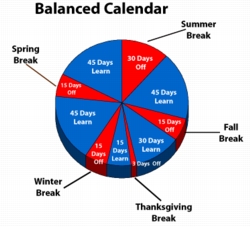 First and foremost, the idea that year-round schooling means more days at school is simply not true. The model still operates on the basic system of 180 days classroom time, it is just allocated in a different way.
First and foremost, the idea that year-round schooling means more days at school is simply not true. The model still operates on the basic system of 180 days classroom time, it is just allocated in a different way. While a lengthy summer vacation will certainly help to reinvigorate both students and teachers, it can be detrimental to a quality education.
While a lengthy summer vacation will certainly help to reinvigorate both students and teachers, it can be detrimental to a quality education.

 This article will clarify what exactly the ASVAB is and how you can achieve success without stress or pressure, even with minimal preparation time.
This article will clarify what exactly the ASVAB is and how you can achieve success without stress or pressure, even with minimal preparation time. Don’t let the slightly unusual structure and complicated scoring system deter you from sitting for the ASVAB. You’d be surprised at how simple and straightforward your preparation can be.
Don’t let the slightly unusual structure and complicated scoring system deter you from sitting for the ASVAB. You’d be surprised at how simple and straightforward your preparation can be. Like most tests, it is in your best interest to allow yourself plenty of preparation time. However, sometimes things don’t work out exactly how you planned and you find yourself with less than a desirable timeframe to work with. Don’t worry, success is still achievable. You’ll just have to tweak your study timetable a little. These ASVAB study tips are designed to help give yourself the best shot with as little as one month study.
Like most tests, it is in your best interest to allow yourself plenty of preparation time. However, sometimes things don’t work out exactly how you planned and you find yourself with less than a desirable timeframe to work with. Don’t worry, success is still achievable. You’ll just have to tweak your study timetable a little. These ASVAB study tips are designed to help give yourself the best shot with as little as one month study. Our ASVAB study tips are the first step in an exciting, new phase of your life! Planning as much time as possible to prep is your best move to getting the results that you are looking for. If time is short, then increase the amount of time you are spending to prepare in what time you have. Move other things to the side (where possible) for now.
Our ASVAB study tips are the first step in an exciting, new phase of your life! Planning as much time as possible to prep is your best move to getting the results that you are looking for. If time is short, then increase the amount of time you are spending to prepare in what time you have. Move other things to the side (where possible) for now. The GRE, or Graduate Record Examinations, offers a gateway to graduate and business schools. While those entering medical school or law school take other tests, those interested in most liberal arts fields, education, and some business program will be looking to take the GRE. And like all the standardized tests, the better your scores, the more options you have available for schools as well as financial aid.
The GRE, or Graduate Record Examinations, offers a gateway to graduate and business schools. While those entering medical school or law school take other tests, those interested in most liberal arts fields, education, and some business program will be looking to take the GRE. And like all the standardized tests, the better your scores, the more options you have available for schools as well as financial aid. But students also lead busy lives and ensuring you have time to focus on the GRE may not always seem possible. So just how long does it take to study for the GRE? The short answer is, however long you have! You can have a GRE study plan 3 months long and some are longer and some are less.
But students also lead busy lives and ensuring you have time to focus on the GRE may not always seem possible. So just how long does it take to study for the GRE? The short answer is, however long you have! You can have a GRE study plan 3 months long and some are longer and some are less. Analytical Writing – this section requires focused responses that articulate complex ideas that are supported with relevant reasons and examples. You must examine claims and evidence, and maintain a concentrated discussion with a high level control of standard written English.
Analytical Writing – this section requires focused responses that articulate complex ideas that are supported with relevant reasons and examples. You must examine claims and evidence, and maintain a concentrated discussion with a high level control of standard written English. Like many other examinations, last minute studying is not useful. The more time you spend preparing for the GRE, the better your results will be. It is recommended that you spend 4-12 weeks developing your skills for the test. This is quite a broad timeframe, the lower end of the scale should be achievable by just about any student that focuses on their preparations. Naturally, spending more time will result in the best outcome possible.
Like many other examinations, last minute studying is not useful. The more time you spend preparing for the GRE, the better your results will be. It is recommended that you spend 4-12 weeks developing your skills for the test. This is quite a broad timeframe, the lower end of the scale should be achievable by just about any student that focuses on their preparations. Naturally, spending more time will result in the best outcome possible. One of the very best ways to study for the GRE on your own is to complete as many practice tests and questions as you possibly can. As already stated, the GRE doesn’t really require you to learn a large amount of new content, but instead it tests your ability to respond to certain types of questioning. The most effective way to learn how to respond to GRE questions is to do them!
One of the very best ways to study for the GRE on your own is to complete as many practice tests and questions as you possibly can. As already stated, the GRE doesn’t really require you to learn a large amount of new content, but instead it tests your ability to respond to certain types of questioning. The most effective way to learn how to respond to GRE questions is to do them!
 The good news is that simply by reading this article, you are beginning to understand what reading can do for you. Our goal here is to help you understand why reading is good for your health, what reading can do for you as well as the scientific benefits of it.
The good news is that simply by reading this article, you are beginning to understand what reading can do for you. Our goal here is to help you understand why reading is good for your health, what reading can do for you as well as the scientific benefits of it. While many of us understand that reading might have benefits on our mind as well as our memories (and that’s critical the older we get), understanding our it might help our overall health is not quite as well known. Here’s just a few reasons to consider reading more:
While many of us understand that reading might have benefits on our mind as well as our memories (and that’s critical the older we get), understanding our it might help our overall health is not quite as well known. Here’s just a few reasons to consider reading more:
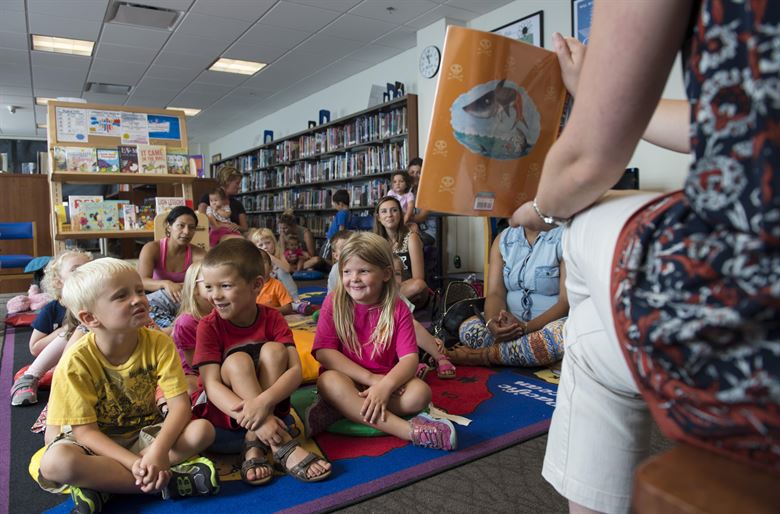 Reading is beneficial at any age, but like most things, the earlier you start the better. Not only does it help form positive habits, but it may also make you smarter – something that will help significantly with your education. Some of the benefits of reading for students and young people include;
Reading is beneficial at any age, but like most things, the earlier you start the better. Not only does it help form positive habits, but it may also make you smarter – something that will help significantly with your education. Some of the benefits of reading for students and young people include;

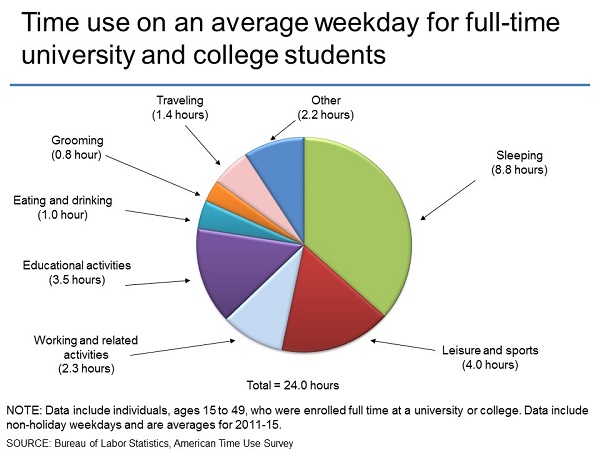


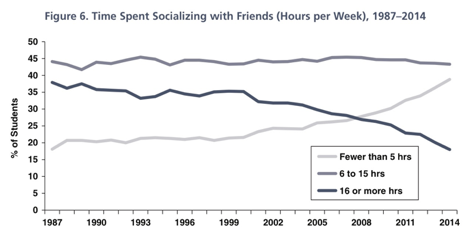

 Now, if you don’t know it by now (and you ought to) then listen carefully…..any test that you are going to take requires preparation. Do I need to repeat that? 😉 Good!
Now, if you don’t know it by now (and you ought to) then listen carefully…..any test that you are going to take requires preparation. Do I need to repeat that? 😉 Good! Unknown answers – Like we said above, guessing is better than blanks! One tip to help, if it’s a total guess, guess the same letter for every question if you really have no idea on any answer. This doesn’t mean if you are down to 2 answers to guess “D” if you think it might be “B” or “A”. But if you have no idea at all, choose one letter and every question that you find yourself in like that, always answer that letter. Statistically it will increase your chances of a few of those guessed answers being right.
Unknown answers – Like we said above, guessing is better than blanks! One tip to help, if it’s a total guess, guess the same letter for every question if you really have no idea on any answer. This doesn’t mean if you are down to 2 answers to guess “D” if you think it might be “B” or “A”. But if you have no idea at all, choose one letter and every question that you find yourself in like that, always answer that letter. Statistically it will increase your chances of a few of those guessed answers being right. Our goal here is to help those who feel they need a little helping hand to achieve what they are capable of in an educational capacity. These 22 high school tips are easily implemented to ensure a stress-free and successful high school experience.
Our goal here is to help those who feel they need a little helping hand to achieve what they are capable of in an educational capacity. These 22 high school tips are easily implemented to ensure a stress-free and successful high school experience. This is probably the most common piece of advice for every student, but why is it so important? Being aware of your time, and what you can do with it, will help ensure you have enough time to complete assignments and prepare for exams.
This is probably the most common piece of advice for every student, but why is it so important? Being aware of your time, and what you can do with it, will help ensure you have enough time to complete assignments and prepare for exams. Snacking on sugary drinks, chips and candy will not help you learn! A sugar high will quickly be followed by a sugar low, leaving you lethargic and unable to concentrate. Instead, maintain a balanced diet for brain development and energy. Ensure you eat a range of fresh fruit and vegetables, with plenty of protein. The odd late night coffee and snacks won’t do you too much damage, but keep it minimal.
Snacking on sugary drinks, chips and candy will not help you learn! A sugar high will quickly be followed by a sugar low, leaving you lethargic and unable to concentrate. Instead, maintain a balanced diet for brain development and energy. Ensure you eat a range of fresh fruit and vegetables, with plenty of protein. The odd late night coffee and snacks won’t do you too much damage, but keep it minimal.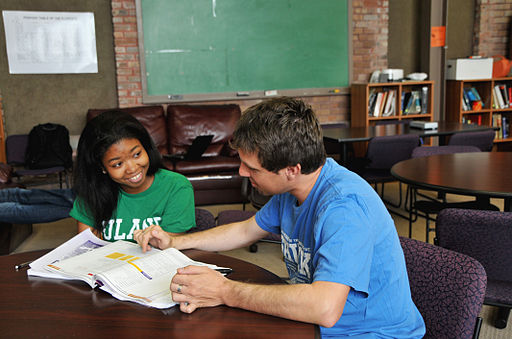 Seeking help from a professional will ensure any issues you have will be eliminated.
Seeking help from a professional will ensure any issues you have will be eliminated.  The only way to be certain of information is to clarify it with your teacher. If you are too embarrassed to ask a question in class, speak to your teacher privately, they’ll be more than happy to help. However, it is important to remember that there are no silly questions, and any questions you have will probably be on the minds of other students too, so you’ll be helping others as well.
The only way to be certain of information is to clarify it with your teacher. If you are too embarrassed to ask a question in class, speak to your teacher privately, they’ll be more than happy to help. However, it is important to remember that there are no silly questions, and any questions you have will probably be on the minds of other students too, so you’ll be helping others as well. While you don’t want to take on too many extra-curricular activities, networking and forming positive relationships can be beneficial to your academic performance. Learn from students older than you, make yourself known to teachers, and take on leadership roles to help make high school the most successful experience possible.
While you don’t want to take on too many extra-curricular activities, networking and forming positive relationships can be beneficial to your academic performance. Learn from students older than you, make yourself known to teachers, and take on leadership roles to help make high school the most successful experience possible. The words ‘summer vacation’ usually conjures up images of long, hot days, freedom and adventure. School and education is usually the furthest thing on the minds of young people and the effect of the commonly called ‘summer brain drain’ is definitely not on the radar. All the strain, stress and hard work of exams have dissipated, and the excitement of three months without educational restraints is often uplifting.
The words ‘summer vacation’ usually conjures up images of long, hot days, freedom and adventure. School and education is usually the furthest thing on the minds of young people and the effect of the commonly called ‘summer brain drain’ is definitely not on the radar. All the strain, stress and hard work of exams have dissipated, and the excitement of three months without educational restraints is often uplifting. Learning an instrument does wonders for brain development and it can often be difficult during the busy school term to find the time. Look for holiday music programs or hire an instrument and teach your children yourself – there are plenty of resources online to help you!
Learning an instrument does wonders for brain development and it can often be difficult during the busy school term to find the time. Look for holiday music programs or hire an instrument and teach your children yourself – there are plenty of resources online to help you!
 Issuing children various chores and responsibilities is nothing new in most houses, but the summer break can be a great chance to involve the children further. Whether you pay them for extra chores to teach lessons of saving, finance and delayed gratification, or simply encourage them to work as part of a team in the daily running of the household to promote responsibility, children will learn valuable life skills.
Issuing children various chores and responsibilities is nothing new in most houses, but the summer break can be a great chance to involve the children further. Whether you pay them for extra chores to teach lessons of saving, finance and delayed gratification, or simply encourage them to work as part of a team in the daily running of the household to promote responsibility, children will learn valuable life skills. While it’s often with the best intentions, many parents try too hard to help their children succeed academically. Children need play. It stimulates creativity, allows them to relax and can improve social relationships. Of course, you need to be careful of the type, and how much play they do. For example, it wouldn’t be productive for a child to spend the majority of their summer playing games on a computer or phone on their own. Age also plays a factor. Younger children can be afforded more play than older children, but fun should always be a consideration!
While it’s often with the best intentions, many parents try too hard to help their children succeed academically. Children need play. It stimulates creativity, allows them to relax and can improve social relationships. Of course, you need to be careful of the type, and how much play they do. For example, it wouldn’t be productive for a child to spend the majority of their summer playing games on a computer or phone on their own. Age also plays a factor. Younger children can be afforded more play than older children, but fun should always be a consideration! And then what happens? Summer vacation. Around ten to twelve weeks of freedom, fun and no stress or pressure from school. Sure, kids need time to be kids and to enjoy their childhood, but summer learning loss can cause real problems upon the return to school. What is even more problematic is the divide that summer learning loss can create between children.
And then what happens? Summer vacation. Around ten to twelve weeks of freedom, fun and no stress or pressure from school. Sure, kids need time to be kids and to enjoy their childhood, but summer learning loss can cause real problems upon the return to school. What is even more problematic is the divide that summer learning loss can create between children. Every child is at risk of experiencing summer learning loss. There are, of course, a small percentage of children who attend regular summer school and similar programs, which significantly reduces any learning loss. Unfortunately, in general, children who come from lower income families tend to experience summer learning loss more than their wealthier counterparts.
Every child is at risk of experiencing summer learning loss. There are, of course, a small percentage of children who attend regular summer school and similar programs, which significantly reduces any learning loss. Unfortunately, in general, children who come from lower income families tend to experience summer learning loss more than their wealthier counterparts. Simply engaging children in conversation and spending quality time together can help reduce summer learning loss, but this can be difficult for single parents, those who work long hours and can’t afford time away from work, or those who, for a variety of reasons, have less than positive familial relationships. However, family doesn’t mean just blood relatives. Extended family and friends can all be a part of this as well. Kids learn from whomever is around, just give them the chance!
Simply engaging children in conversation and spending quality time together can help reduce summer learning loss, but this can be difficult for single parents, those who work long hours and can’t afford time away from work, or those who, for a variety of reasons, have less than positive familial relationships. However, family doesn’t mean just blood relatives. Extended family and friends can all be a part of this as well. Kids learn from whomever is around, just give them the chance! One of the best things children can do over the summer is read. Libraries are usually free to join and offer an abundance of books for children of all ages. Librarians are full of knowledge about books to help advise you on what might suit your child the best, and what might help them develop a love for reading. A child may be a hesitant reader simply because they haven’t found a style of book they enjoy.
One of the best things children can do over the summer is read. Libraries are usually free to join and offer an abundance of books for children of all ages. Librarians are full of knowledge about books to help advise you on what might suit your child the best, and what might help them develop a love for reading. A child may be a hesitant reader simply because they haven’t found a style of book they enjoy. Most towns and cities have summer events and activities to get involved in or to explore. Summer concerts, art programs, STEM program (growing in popularity and availability), library or community center options are all free or near free to those residents in the community.
Most towns and cities have summer events and activities to get involved in or to explore. Summer concerts, art programs, STEM program (growing in popularity and availability), library or community center options are all free or near free to those residents in the community.